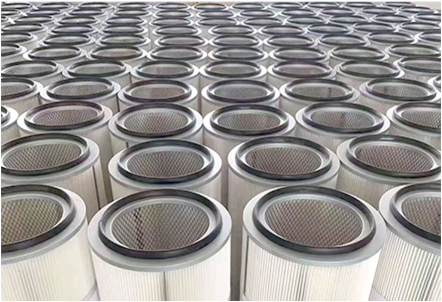 Tel:
+8618931101301
Tel:
+8618931101301
Oct . 22, 2024 14:53 Back to list
Choosing the Right Cartridge Oil Filter for Your Vehicle's Maintenance Needs
Understanding Cartridge Oil Filters Importance and Benefits
Cartridge oil filters play a crucial role in maintaining the health and efficiency of an engine. They serve as essential components in vehicles and machinery, designed to remove contaminants from engine oil, ensuring that the oil remains clean and effective in lubricating engine parts. As engines operate, they generate heat and friction, leading to the formation of debris, sludge, and harmful particles in the oil. Here, we delve into the significance of cartridge oil filters, how they work, and why regular maintenance is vital for optimal engine performance.
What is a Cartridge Oil Filter?
A cartridge oil filter consists of a cylindrical casing that houses a filtering media, typically made from paper, synthetic materials, or fiberglass. This construction allows for efficient filtration while keeping the filter compact and easy to replace. Unlike spin-on filters, which are commonly used in many vehicles, cartridge oil filters are designed to be replaced by removing just the inner filter element, thus promoting the use of recyclable materials and reducing waste.
How Do Cartridge Oil Filters Work?
The primary function of a cartridge oil filter is to circulate engine oil through its filtering media. As oil flows through the filter, contaminants such as dirt, metal shavings, and carbon buildup are trapped in the media, preventing them from circulating back into the engine. The clean oil then flows back into the engine, where it lubricates vital components, reduces friction, and dissipates heat. Over time, the filter can become clogged with debris, which can hinder oil flow and reduce its effectiveness.
Benefits of Using Cartridge Oil Filters
cartridge oil filter

1. Enhanced Filtration Cartridge oil filters generally provide superior filtration compared to traditional oil filters. Their advanced filtering media can trap smaller particles, ensuring that the oil circulating through the engine is cleaner and free from harmful debris.
2. Eco-Friendly Design Many cartridge oil filters are designed for easy disposal and recycling. By separating the filtering media from the housing, users can reduce waste and lower their environmental impact, aligning with sustainable practices.
3. Better Engine Performance Regularly changing the oil and replacing the cartridge filter helps maintain optimal engine performance. Clean oil improves lubrication, decreases wear and tear on engine components, and increases fuel efficiency.
4. Longer Oil Change Intervals With efficient filtration, cartridge oil filters can extend the longevity of engine oil, meaning that drivers may not need to change their oil as frequently, saving both time and money.
Maintenance and Replacement
To ensure that your cartridge oil filter functions effectively, regular maintenance is essential. The best practice is to replace the oil filter every time you change the oil, typically every 3,000 to 7,500 miles, depending on the manufacturer’s recommendations and driving conditions. It is crucial to use high-quality filters that meet OEM specifications to ensure compatibility and optimal performance.
In conclusion, cartridge oil filters are indispensable in protecting the engine and enhancing its efficiency. By trapping contaminants and maintaining clean oil circulation, they contribute to better engine performance and longevity. Regular replacement and proper maintenance of these filters are vital for keeping your engine running smoothly and efficiently, ultimately leading to a more reliable and economical vehicle. Whether in cars, trucks, or heavy machinery, investing in a quality cartridge oil filter is an essential step for any vehicle owner committed to maintaining their engine's health.
-
Working principle of high-efficiency dust filter elementNewsJun.26,2025
-
The truth about washable filters: Does repeated use really not affect efficiency?NewsJun.25,2025
-
Effect of humidity on the performance of activated carbon filter elementsNewsJun.24,2025
-
Material selection considerations for dust removal filter elements under high temperature conditionsNewsJun.23,2025
-
Cold knowledge of air filters: Why are some designed to be pleated?NewsJun.16,2025
-
Factory direct supply! High-precision air filter element wholesale and customizationNewsJun.12,2025

 Email:
Email:





